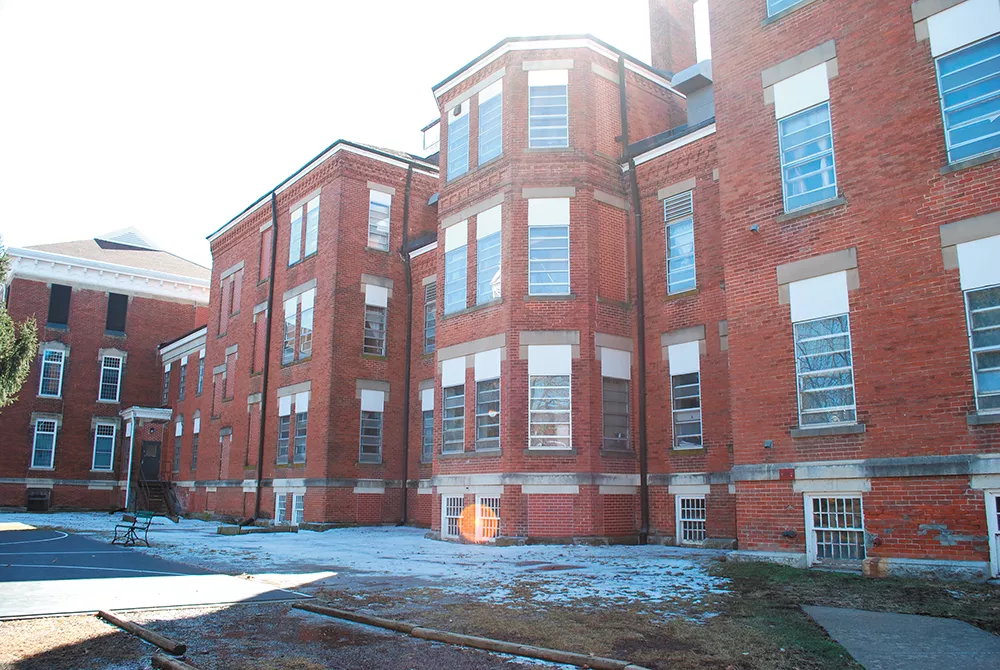
A 16-year-old who refuses to be sent outside of the state. An intellectually disabled 10-year-old who can't find a home. A 9-year-old child who lived in a behavior rehabilitation facility that closed.
All of these are foster children who the state of Washington temporarily placed in hotels or offices because it couldn't find any other place to put them, according to a new report from the Washington Family and Children's Ombuds, which independently oversees the state's foster care system.
From Sept. 1, 2017, until Aug. 31, 2018, nearly 200 foster children spent a total of 1,090 nights in a hotel or office, the report shows. It's a practice that's occurring more frequently since 2015, when there were just 120 nights that kids spent in hotels.
"Historically, it's been a King County and Snohomish County issue," says Patrick Dowd, director of the Washington Family and Children's Ombuds.
But that's changed.
While the majority of so-called "placement exceptions" occur in the west side, data from the state Department of Children, Youth and Families shows 22 hotel stays in Eastern Washington in 2018. For comparison, there were only four in 2017 and zero the prior two years. Each hotel stay costs about $2,100 per night, as two social workers and sometimes a security guard supervise the child.
State officials and others involved in foster care system say it's representative of how overburdened the system has become, as a shortage of foster parents and available beds cannot handle the influx of children entering the system.
"We're at a critical mass," says Mary McGauhey, director of nonprofit Foster Parents Association of Washington State. "We need to have more foster placements and more foster homes available."
Driven in part by the opioid crisis, children are entering the foster care system in Washington at an alarming rate. But there hasn't been a similar increase in foster homes — in fact, the number of foster parents has gone down slightly.
This has resulted in some kids falling through the cracks. They might be sent to a facility out of state, or they might stay in a hotel until a caregiver can be found. Sometimes it can be both. The 16-year-old who refused to be sent out of state ended up staying more than two months in a hotel before being sent to an out-of-state group care facility anyway, according to the Washington Family and Children's Ombuds report. At least six kids who stayed in hotels have been sent to out-of-state group care facilities. Some of the children had a history of poor behavior at other foster care placements.
The state Department of Children Youth and Families, in charge of the foster care system, says children are placed in hotels only when there has been an unsuccessful attempt to locate a relative, licensed foster care facility or another suitable person to take care of the child.
For most children, a hotel stay is not a long-term solution. The Washington Family and Children's Ombuds report says just 31 children make up 65 percent of all hotel/office stays. Still, the experience can be jarring for children.
"Some kids are relieved that they have a safe space to be," McGauhey says. "But most of the time they're confused and unsure of where they're going to be. They feel like they're left out."
McGauhey says, ideally, there would be enough foster homes and the state would not have to place kids in hotels or ship them out of state. But that's not the case.
"They have no other option," she says. "They're between a rock and a hard place."
For Dowd, the shortage of foster placements is "perhaps the single greatest challenge" facing the newly established Department of Children, Youth and Families (DCYF). And the increasing hotel stays for children indicates that the problem isn't getting any better.
"It really underscores, in my view, a gap in our placement resources," Dowd says.
It's not just volunteer foster parents, he says. Rather, he argues the state should recruit, train and compensate professional therapeutic foster parents. These are parents who would devote their full attention to children with high needs, but the children would be in a family-like setting. He adds that the state should invest in providing mental health services for children at an earlier age.
The DCYF is working to solve the problem of hotel stays, says spokeswoman Debra Johnson.
"There is a plan in place that will hopefully turn the tide on hotel stays in the coming year, if not sooner," Johnson says.
In the department's budget request for the coming state legislative session, DCYF is asking for money that would be put toward increasing rates for behavioral rehabilitation services so those facilities can have more well-trained staff and more beds. And then DCYF wants to have therapeutic foster parents so that children step down from group care to a family setting. Johnson says DCYF wants to "change the narrative" of child welfare in the state of Washington.
But most of that work can only be done if the state Legislature invests in DCYF, she says.
As the issue of children sleeping in hotels grows in Washington, Dowd says he's disappointed the problem hasn't been addressed by state leaders yet. It's been the focus of his annual report for four years, he says.
"I remember the first year I documented and reported this, I was really alarmed," Dowd says. "I thought this would be solved. I thought, 'certainly the Legislature and stakeholders won't stand for children sleeping in hotels.'" ♦
